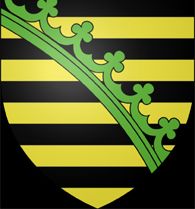A Crown for the Wolves

Saxony starts as a one province Protestant German state. An ancient Electorate of the Holy Roman Empire, it has been ruled for centuries by the House of Wettin from its capital, the relatively prosperous city of Dresden. Situated in a melting pot of small German fiefs between the Hapsburg Holy Roman Emperors and the King In Prussia, it has a small army and not much infrastructure to speak of. The rising fortunes of its rulers have also hit something of a roadblock recently, in a political storm that has Europe talking.
Updated on Sundays unless otherwise warned.
Notable Persons
And I shall go Softly into the Night Taking my Dreams As will You
[This message has been edited by EnemyofJupitor (edited 12-21-2013 @ 09:19 AM).]

























 Turned out I managed to get two job interviews on the Friday I said I'd do things and have been pinging across the country like a yo yo. I'm going to be settling down to a nice steady summer job on monday, so I'll start writing again then. To be Continued!
Turned out I managed to get two job interviews on the Friday I said I'd do things and have been pinging across the country like a yo yo. I'm going to be settling down to a nice steady summer job on monday, so I'll start writing again then. To be Continued! 


































